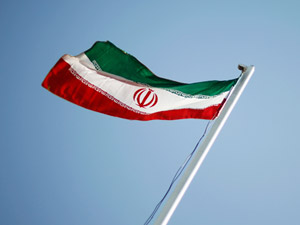 Iran�s assertiveness as a regional power and its increasingly active role in major regional crises, has caused considerable alarm with the Gulf monarchies, who stepped up their effort to create a Gulf Union. Meanwhile the growing antagonism between the two is fraught with considerable risks for the stability of the region.
Iran�s assertiveness as a regional power and its increasingly active role in major regional crises, has caused considerable alarm with the Gulf monarchies, who stepped up their effort to create a Gulf Union. Meanwhile the growing antagonism between the two is fraught with considerable risks for the stability of the region.At the recent two-day annual summit in Bahrain the GCC members -- Bahrain, Kuwait, Oman, Qatar, Saudi Arabia and the United Arab Emirates � have indicated they are seeking further integration in the face of Iranian threat.
On Monday, the first day of the summit, Saudi Crown Prince Salman Bin Abdul Aziz expressed the kingdom�s hope for the declaration of a Gulf Union. �We aspire to a strong union with integrated economies, a joint foreign policy and a common defense system,� Prince Salman said.
The six monarchies, all long-time U.S. allies, have also used the occasion to lash out at Iran, which, according to the summit�s final statement, is threatening regional security and stability. In an interview to Al Arabiya, the UAE Foreign Minister Sheikh Abdullah bin Zayed Al Nahyan said the GCC was concerned by Iran�s nuclear activity, and the Bushehr reactor in particular. He added that the lack of transparency by Iran on its program has raised suspicions over whether the nuclear activity is intended for peaceful purposes.
The final statement demands that Iran end its �interference in Gulf Arab affairs�. On the other hand, a GCC communiqu� also called on the international community to bring a swift end to massacres and violations of international law in Syria.
However, it is Iran which has come up with the latest initiative on the Syrian crisi resolution, which it discussed in Turkey in the Middle of December.
The Tehran plan, submitted on December, 16, is made up of six points, that provide for a full cessation of violence, prohibiting all weapons deliveries to the country, putting off all interference from external parties, the launch of a comprehensive national dialogue and the general and presidential election. Under the plan President Assad is to retain his post at least till 2014.
The proposal has been rejected by the part of the Syrian opposition which is supported by Gulf monarchies. Yet, Iran�s increasing assertiveness has put the GCC on the offensive.
�We aspire to a strong union with integrated economies, a joint foreign policy and a common defense system,� Saudi Crown Prince Salman Bin Abdul Aziz claimed.
The statement was made days before Iran started Velayat�91 - a major six-day naval exercise at an area over one million square kilometers. The spokesman of the Velayat '91 Naval Drills Admiral Amir Rastegari said that 'The main objective of holding these drills in addition to maintaining the defense readiness of the IRI Navy for confronting any possible threat of the enemy is sending the message of peace and friendship for the regional countries, including to our neighbors.'
According to the Admiral, in Phase One of the Velayat '91 Naval Drills the supposedly invading forces' warships (orange color), including the heavy surface vessels and their submarines, after penetration into the entrance passages and aiming to invade the Iranian mainland, face the Iranian forces (blue color) as they were approaching the Sea of Oman and the Persian Gulf waters, but they had ignored the fact that the Iranian forces relying on their precise information and second by second navigation had been fully aware of their movements.'
The exercise is closely watched by the hypothetic �invading forces�, as the USS John C. Stennis (CVN-74), nuclear-powered supercarrier currently on duty in the Arabian Gulf, has passed the Strait of Hormutz and entered the Persian Gulf. With all eyes on the naval exercise Iran is holding, President Obama has taken extra precautions. On December, 29, he signed into law the Countering Iran in the Western Hemisphere Act, which allows 180 days for the State Department to develop a strategy to "address Iran's growing hostile presence and activity" in the region.
Same Act urges the Department of Homeland Security to bolster surveillance at U.S. borders with Canada and Mexico to "prevent operatives from Iran, the Iranian Revolutionary Guard Corps, its Quds Force, Hizbullah or any other terrorist organization from entering the Untied States," Naharnet.com, the leading Lebanese news portal reports.
By The Voice of Russia
The Iran Project is not responsible for the content of quoted articles.










